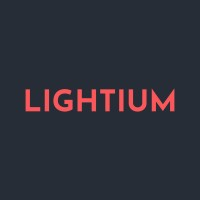Lightium's $7 Million Seed Round: A Game Changer for Data Centers
September 19, 2024, 9:37 pm
In the fast-paced world of technology, data is the new oil. As artificial intelligence (AI) surges forward, the demand for data processing skyrockets. By 2030, data centers are projected to handle 100 times more data than today, consuming up to 10% of the world’s electricity. This staggering growth mirrors the energy consumption of entire nations, placing immense pressure on existing infrastructure. Enter Lightium, a Swiss startup poised to revolutionize data transmission with its innovative Thin-Film Lithium Niobate (TFLN) photonic chips.
Lightium recently secured $7 million in seed funding, a significant boost that will propel its mission to enhance data center performance while slashing energy consumption. This funding round was co-led by Vsquared Ventures and Lakestar, reflecting strong investor confidence in Lightium’s vision and technology.
Data centers are the backbone of the digital age, housing clusters of Central Processing Units (CPUs) and Graphics Processing Units (GPUs) that perform compute-intensive tasks. However, a critical bottleneck exists in the form of optical interconnects. Traditional semiconductor-based solutions have hit a ceiling, maxing out at 800 Gb/s. This limitation hampers the ability to keep pace with the explosive growth of data.
Lightium’s TFLN technology offers a breath of fresh air. TFLN is a glass-like material that can significantly boost data transmission rates to 1.6 or even 3.2 Tb/s. This leap in performance comes with a bonus: reduced power consumption. In an era where energy efficiency is paramount, Lightium’s solution is a beacon of hope.
The startup is not just another player in the tech landscape. Founded by Dr. Amir Ghadimi, Dr. Frédéric Loizeau, and MIT professor Prof. Dirk Englund, Lightium combines expertise in photonics and semiconductor technology. Their collective experience positions them uniquely to tackle the challenges of TFLN manufacturing, which has historically been limited to academic and research settings.
Lightium’s proprietary manufacturing process is the key to unlocking TFLN’s potential. The company is gearing up for volume production, aiming to produce tens of thousands of devices for field testing in data centers. With a target of 20 million units per year within four years, Lightium is setting its sights high. This ambitious goal is supported by partnerships with manufacturing entities in the Western world, ensuring that production meets the growing demand.
The versatility of TFLN extends beyond data centers. Its applications span satellite communication, quantum computing, and LIDAR systems. This adaptability makes Lightium’s technology a valuable asset across various sectors, positioning the company as a leader in the photonics space.
As Lightium prepares for its 2025 launch, the company is also focused on expanding its team. Currently operating with a lean staff of eight, the goal is to grow to 30-35 employees by the end of next year. This growth is essential for scaling operations and meeting the demands of a rapidly evolving market.
The recent funding will enhance Lightium’s design, manufacturing, and testing capabilities. It will also optimize the Process Design Kit (PDK), a crucial tool for semiconductor makers. This optimization is vital for ensuring that TFLN technology can be seamlessly integrated into existing systems.
The energy landscape is changing. As silicon-based technologies struggle to keep up with the demands of modern data centers, alternative materials like TFLN are gaining traction. Lightium’s approach is timely, addressing the urgent need for efficient, high-speed data transmission solutions.
Competitors are also in the race. Major players like Intel and startups such as Ayar Labs and Celestial AI are exploring silicon photonics. However, Lightium’s focus on TFLN gives it a unique edge. If the company can deliver on its promises and start mass production by early next year, it could emerge as a frontrunner in the industry.
The implications of Lightium’s success are profound. Enhanced data transmission capabilities could lead to faster processing times, reduced energy costs, and a smaller carbon footprint for data centers. In a world increasingly concerned with sustainability, these benefits cannot be overstated.
In conclusion, Lightium is not just another startup; it’s a harbinger of change in the tech industry. With its innovative TFLN photonic chips, the company is set to transform how data centers operate. The $7 million seed funding is a stepping stone toward a future where data transmission is faster, more efficient, and environmentally friendly. As Lightium gears up for its launch, the tech world will be watching closely. The race for the future of data centers has begun, and Lightium is leading the charge.
Lightium recently secured $7 million in seed funding, a significant boost that will propel its mission to enhance data center performance while slashing energy consumption. This funding round was co-led by Vsquared Ventures and Lakestar, reflecting strong investor confidence in Lightium’s vision and technology.
Data centers are the backbone of the digital age, housing clusters of Central Processing Units (CPUs) and Graphics Processing Units (GPUs) that perform compute-intensive tasks. However, a critical bottleneck exists in the form of optical interconnects. Traditional semiconductor-based solutions have hit a ceiling, maxing out at 800 Gb/s. This limitation hampers the ability to keep pace with the explosive growth of data.
Lightium’s TFLN technology offers a breath of fresh air. TFLN is a glass-like material that can significantly boost data transmission rates to 1.6 or even 3.2 Tb/s. This leap in performance comes with a bonus: reduced power consumption. In an era where energy efficiency is paramount, Lightium’s solution is a beacon of hope.
The startup is not just another player in the tech landscape. Founded by Dr. Amir Ghadimi, Dr. Frédéric Loizeau, and MIT professor Prof. Dirk Englund, Lightium combines expertise in photonics and semiconductor technology. Their collective experience positions them uniquely to tackle the challenges of TFLN manufacturing, which has historically been limited to academic and research settings.
Lightium’s proprietary manufacturing process is the key to unlocking TFLN’s potential. The company is gearing up for volume production, aiming to produce tens of thousands of devices for field testing in data centers. With a target of 20 million units per year within four years, Lightium is setting its sights high. This ambitious goal is supported by partnerships with manufacturing entities in the Western world, ensuring that production meets the growing demand.
The versatility of TFLN extends beyond data centers. Its applications span satellite communication, quantum computing, and LIDAR systems. This adaptability makes Lightium’s technology a valuable asset across various sectors, positioning the company as a leader in the photonics space.
As Lightium prepares for its 2025 launch, the company is also focused on expanding its team. Currently operating with a lean staff of eight, the goal is to grow to 30-35 employees by the end of next year. This growth is essential for scaling operations and meeting the demands of a rapidly evolving market.
The recent funding will enhance Lightium’s design, manufacturing, and testing capabilities. It will also optimize the Process Design Kit (PDK), a crucial tool for semiconductor makers. This optimization is vital for ensuring that TFLN technology can be seamlessly integrated into existing systems.
The energy landscape is changing. As silicon-based technologies struggle to keep up with the demands of modern data centers, alternative materials like TFLN are gaining traction. Lightium’s approach is timely, addressing the urgent need for efficient, high-speed data transmission solutions.
Competitors are also in the race. Major players like Intel and startups such as Ayar Labs and Celestial AI are exploring silicon photonics. However, Lightium’s focus on TFLN gives it a unique edge. If the company can deliver on its promises and start mass production by early next year, it could emerge as a frontrunner in the industry.
The implications of Lightium’s success are profound. Enhanced data transmission capabilities could lead to faster processing times, reduced energy costs, and a smaller carbon footprint for data centers. In a world increasingly concerned with sustainability, these benefits cannot be overstated.
In conclusion, Lightium is not just another startup; it’s a harbinger of change in the tech industry. With its innovative TFLN photonic chips, the company is set to transform how data centers operate. The $7 million seed funding is a stepping stone toward a future where data transmission is faster, more efficient, and environmentally friendly. As Lightium gears up for its launch, the tech world will be watching closely. The race for the future of data centers has begun, and Lightium is leading the charge.


